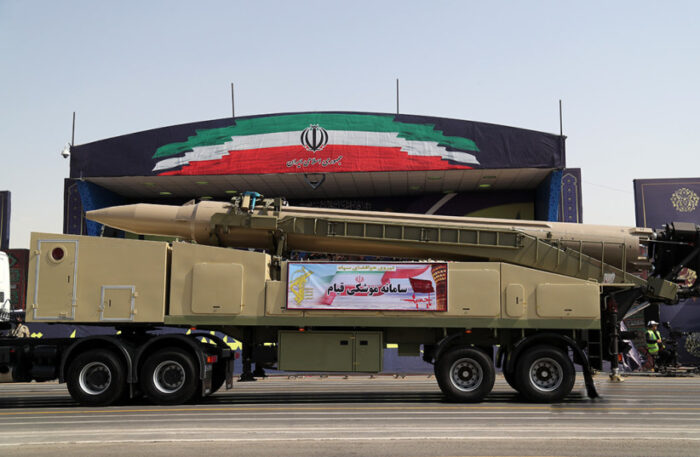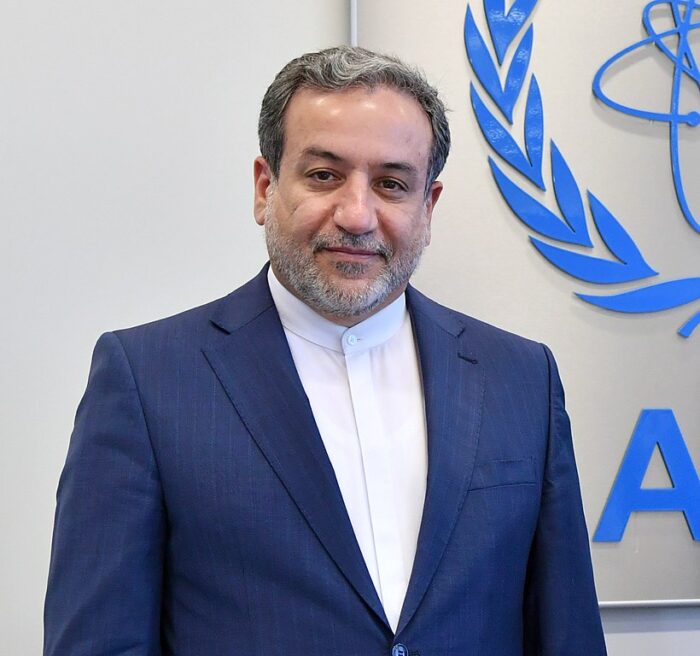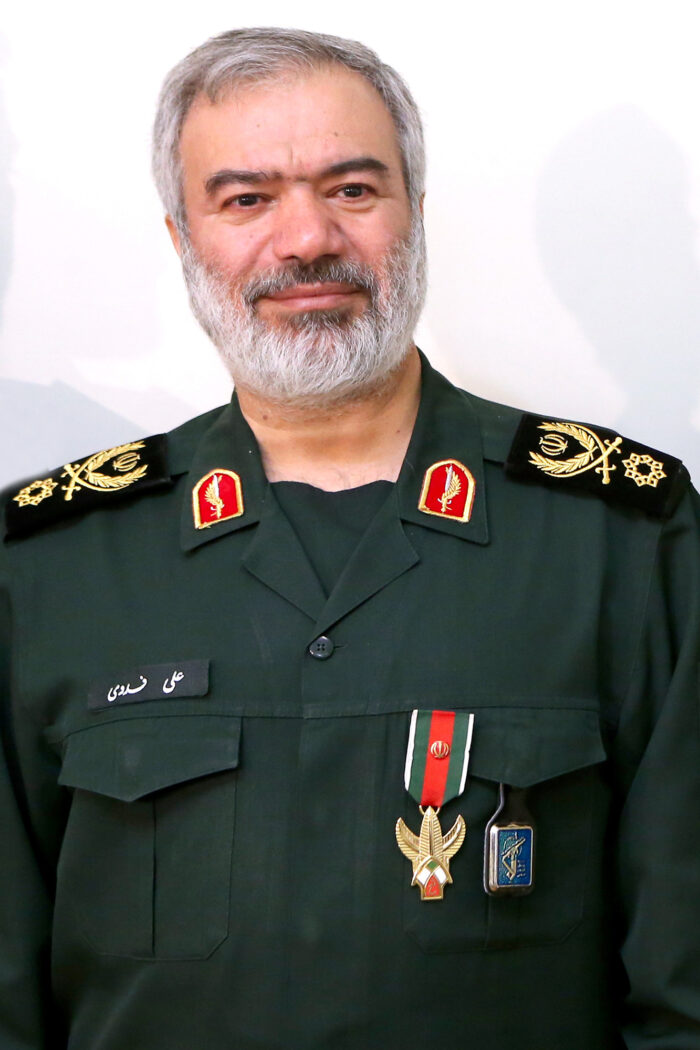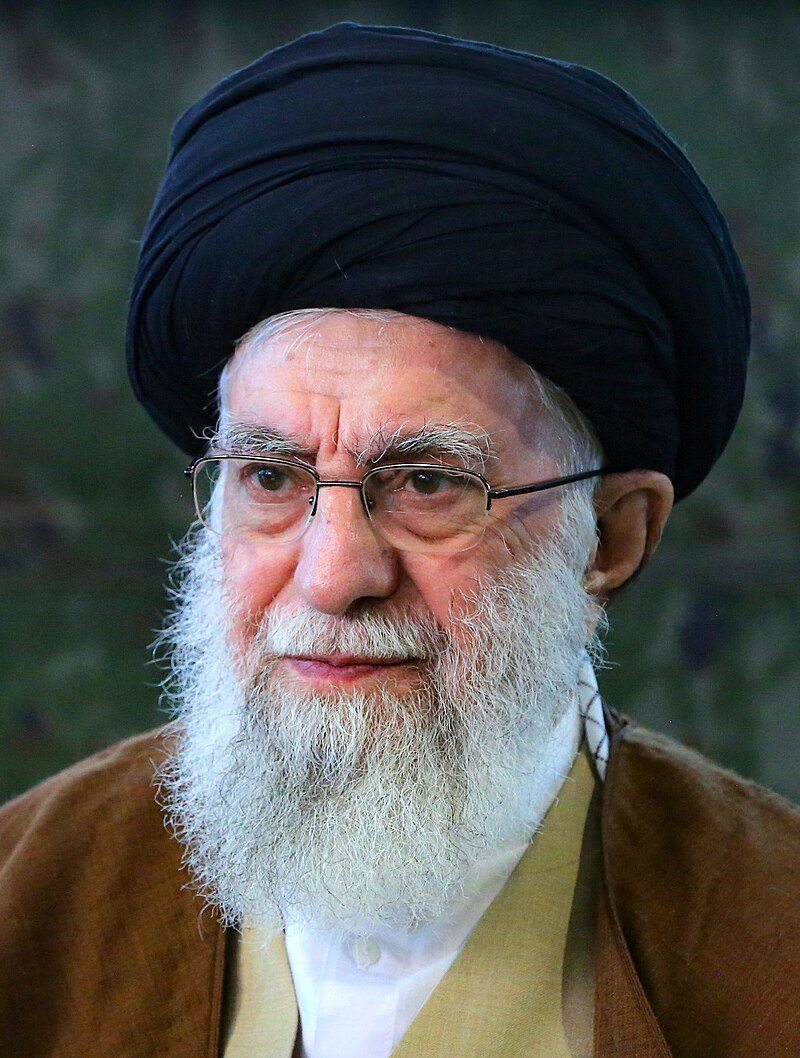It appears that Iran, Israel’s deadliest enemy, has suspended its much-anticipated retaliatory attack against Israel.
Iranian leaders from Ayatollah Ali Khamenei on down had promised to react forcefully to Israel’s air strikes on Iran on October 26, following Iran’s ballistic missile barrage against Israel on October 1.
These tit-for-tat exchanges, the first direct clashes between Israel and Iran after a long shadow war of indirect confrontations, occurred in the wake of two previous rounds in April.
These hostilities were triggered by Israel’s bombing on April 1 of Iran’s consulate in Damascus, which resulted in the deaths of several high-ranking members of the Islamic Revolutionary Guards Corps, who worked closely with Hezbollah against Israel.

Shortly after Israel’s last strike, Khamenei threatened Israel in no uncertain terms. “The enemies, whether the Zionist regime or the United States of America, will definitely receive a crushing response to what they are doing to Iran and the Iranian nation and to the resistance front,” he said, referring to Iran’s Axis of Resistance, an anti-Israel alliance composed of, among others, Hamas and Hezbollah.
Despite Khamenei’s bluster, Iran has yet to make good on its promise to inflict pain on Israel. Donald Trump’s reelection as U.S. president may have cooled Iran’s anger and set it off on a far different direction.
Observers speculate that Iran may have no appetite to exacerbate further tensions with Trump on the eve of his inauguration on January 20.
During his first presidency, Iran was in his crosshairs.
As will be recalled, he ordered the 2020 assassination of Quds Force commander Qassem Soleimani, the U.S.’ 2018 unilateral withdrawal from the 2015 Iran nuclear agreement, and the campaign of “maximum pressure” aimed at the Iranian economy.
Iran is also acutely aware that many of Trump’s cabinet nominees, such as incoming Secretary of State Marco Rubio, are hostile to Iran and fervent supporters of Israel.

Iran, too, seeks the lifting of U.S. sanctions and the modification of the nuclear accord. Iran most certainly is interested in supporting Trump’s stated plans to end wars in the Middle East, since his position could be helpful to Hezbollah and Hamas.
Given these factors, Iran does not want to roil the waters. Even before last month’s U.S. presidential election, Iran sent a message to the Biden administration that, contrary to insinuations by some American intelligence officials, it was not plotting to assassinate Trump.
And soon after the November 5 election, Iran’s ambassador to the United Nations, met Elon Musk, the world’s wealthiest person and one of Trump’s advisors.
Iran’s show of moderation may partially stem from recent U.S. warnings that Washington would not be able to restrain Israel should it be attacked by Iran again. “We told the Iranians: We won’t be able to hold Israel back, and we won’t be able to make sure that the next attack will be calibrated and targeted as the previous one,” the Axios news site quoted a highly-placed American official.
Jake Sullivan, President Joe Biden’s national security adviser, reportedly told Iraqi Prime Minister Mohammad Shia al-Sudani that Israel would probably strike Iraq if Iran launched an attack on Israel from Iraq’s territory, as reports suggested.

The U.S. ambassador to the United Nations, Linda Thomas-Greenfield, warned Iran as well. She said there would be “severe consequences” if Iran followed through on its threat to retaliate. “We believe this should be the end of the direct exchange of fire between Israel and Iran,” she said in reference to the last round on October 26.
Her remarks were not merely rhetorical.
The U.S. has bolstered its military presence in the eastern Mediterranean Sea, having dispatched fighter jets, B-52 bombers and ships there. It also sent the Terminal High Altitude Area Defence (THAD) missile system to Israel, along with 100 soldiers and technicians, to bolster Israel’s defences.
In light of these developments, Iran has toned down its rhetoric to some extent.
A week ago, Iranian Foreign Minister Abbas Araghchi said that, while Iran maintained its right to avenge Israel’s latest air strikes, it would take “regional developments,” such as the Israel-Hezbollah ceasefire in Lebanon, into consideration.

The renewal of fighting in Syria, Iran’s chief ally in the Arab world, is also constraining Tehran. In the last few days, Syrian rebels have captured Aleppo, striking a grievous blow to President Bashar al-Assad’s efforts to wind down the civil war, which erupted in 2011 after he violently crushed peaceful anti-government protests.
Last but not least, Iran may be deterred by Israel.
Israel’s precision air strikes in October, involving three waves of aircraft, were devastating. By all accounts, Israel severely damaged a nuclear weapons research laboratory, ballistic missile production facilities, air defence systems, and rocket launchers.
“We hit (Iran’s) underbelly,” said Prime Minister Benjamin Netanyahu. “The boastful talk by the Iranian regime’s heads cannot conceal and compensate for the fact that Israel now has greater freedom to operate in Iran than ever before.”
Netanyahu warned that a third Iranian attack would embolden Israel to bomb Iran’s oil production facilities. These strikes, he noted, “would simply cripple Iran’s economy.”
Israel’s newly appointed defence minister, Israel Katz, warned Iran that its nuclear sites are more vulnerable than ever. As he put it on November 12, “Iran today is more exposed than ever to damage to its nuclear facilities.”
The commander of Israeli forces, General Herzi Halevi, issued a warning, too. He said that if Iran “makes the mistake and launches another barrage of missiles at Israel, we will once again know how to reach Iran.” He added that Israel would deploy new “capabilities” and hit Iran “extremely hard.”
Israel issued these threats in reaction to Iranian saber-rattling.
On October 30, the deputy commander of Iran’s Islamic Revolutionary Guards Corps, General Ali Fadavi, said that Iran would definitely respond to Israeli “aggression.” As he blusteringly said, “We have never left an aggression unanswered in 40 years. We are capable of destroying all that the Zionists possess with one operation.”

A day later, General Hossein Salami, the commander of the Islamic Revolutionary Guard Corps, warned of an “unimaginable” Iranian response to Israel. “Israel has reached the stage of collapse, and these days it acts blindly without abiding to any rules and commits every crime.”
On November 3, Iranian President Masoud Pezeshkian said that Iran “will not leave unanswered any aggression against its sovereignty and security.” But he noted that the scale of Iran’s strike could be affected by events in Lebanon and the Gaza Strip. “If they (the Israelis) reconsider their behavior, accept a ceasefire, and stop massacring the oppressed and innocent people of the region, it could affect the intensity and type of our response.”
The Wall Street Journal reported on November 4 that Iran was planning a complex attack on Israel with high-powered missiles.
Shortly afterward, the director of Khamenei’s office, Gholamhossein Mohammadi Golpayegani, said that Iran intended to deliver “a fierce, tooth-breaking response” to Israel’s “desperate action.”

On November 24, Ali Larijani, a senior adviser to Khamenei, declared that Iran has every intention of restoring “deterrence” vis-a-vis Israel.
Iran may eventually carry out its retaliatory threat, but in the meantime, it is biding its time, keeping Israel on edge.
